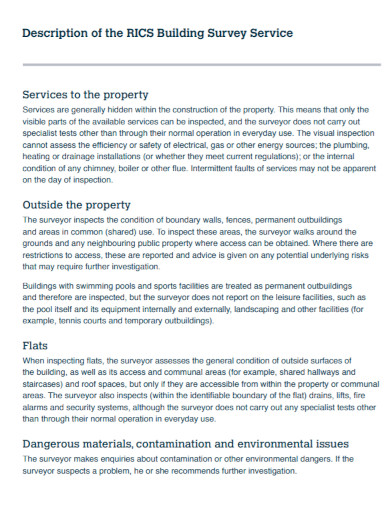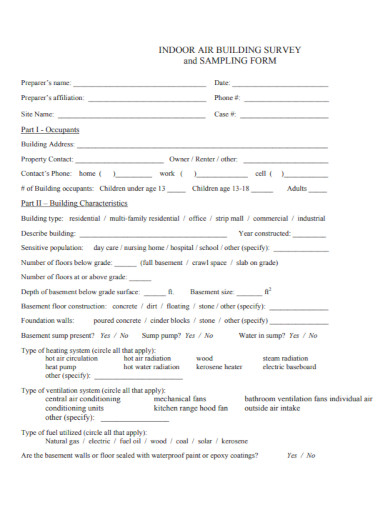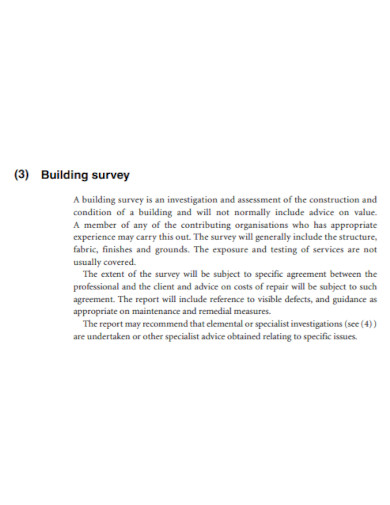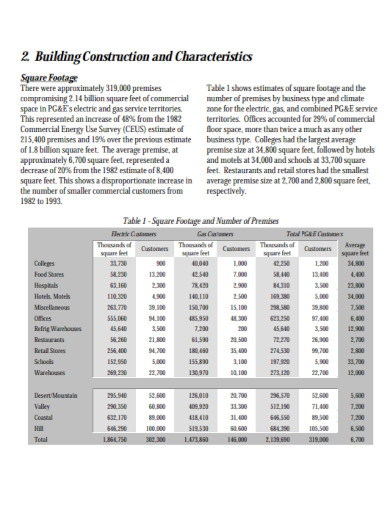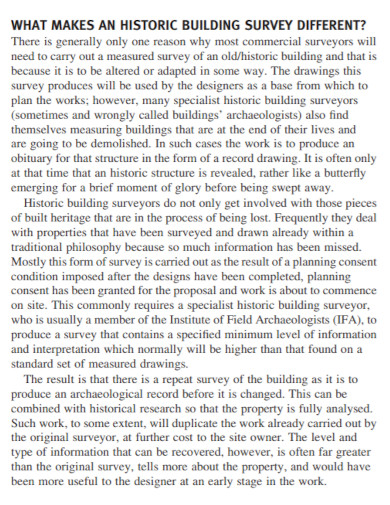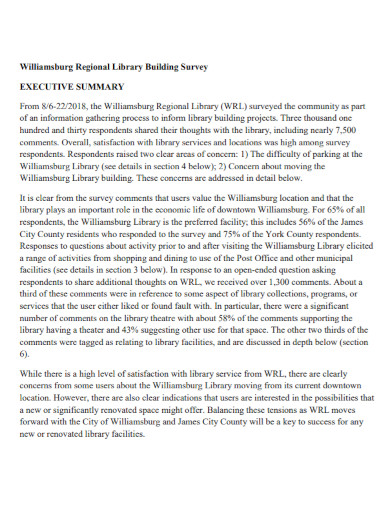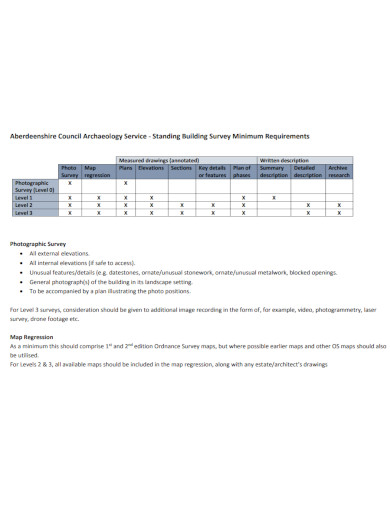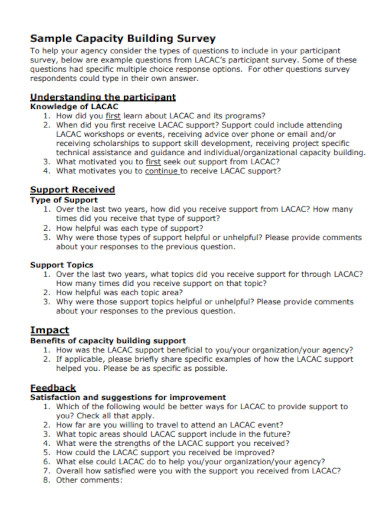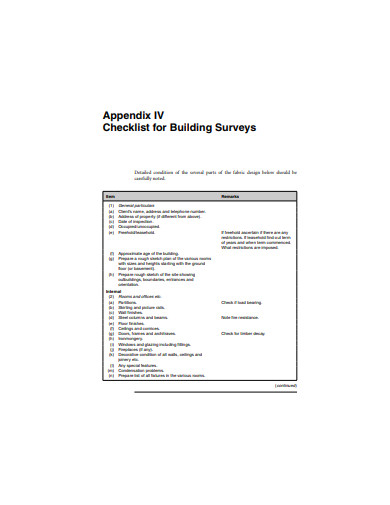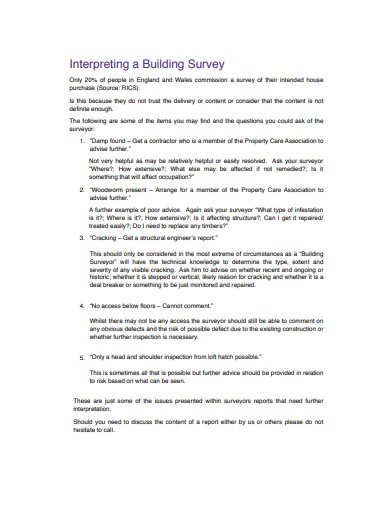When you check out buildings there is always a good reason to do so. Whether it is for research, for a historic discovery, for commercial purposes or even for an educational purpose. Surveying a building often comes with a lot of well prepared instructions that the person who will be inspecting have to follow. Often than not, a lot of people tend to think about building surveys as a means of checking out for risks or problems that may be present in the building. Which is also helpful. To get a glimpse of what a building survey is and how you can write it, here are examples of building surveys.
[bb_toc content=”][/bb_toc]
10+ Building Survey Examples
1. Building Survey Service
2. Building Survey Form
3. Building Survey Sheet
4. Simple Building Survey
5. Commercial Building Survey Report
6. Historic Building Survey
7. Regional Library Building Survey
8. Archaeology Service Building Survey
9. Sample Capacity Building Survey
10. Checklist for Building Survey
11. Interpreting a Building Survey
What Is a Building Survey?
When you inspect or investigate something and give some comments or suggestions to it, you are doing a survey. Building surveys are tools used mainly by building inspectors in order to understand and see to it that the building in question is not at risk in terms of accidents, incidents and even natural or man made causes. The building survey consists of a series of questions, checklists and details that sum up what the inspector should be doing. When you create a building survey, make sure you have the right information and the right questions.
How to Write a Building Survey
Being tasked to do a building survey should be taken very seriously. The fact and the truth is, it helps to know what you can find and what you can write to report to the owner of the building. It also helps them know where to improve and what to improve on. With that being said, here are tips to help you write a building survey.
Step 1: Ask the Right Questions
You may have noticed this in building surveys, wherein the questions often go together or when the questions are aimed at your goal. The reason for this is to make sure that the right questions are being asked, in order for you to complete what is asked of you. When you write your survey, make sure to ask the right questions. These questions or statements should adhere to your main goal in the survey.
Step 2: Prioritize Important Factors
Apart from asking the right questions, it is also best to prioritize the important factors that make up the building survey. You can do this by outlining the necessary topics and subtopics. Each topic should be given a prioritized time, which means you will have to manage everything to make the building survey a success.
Step 3: Leave Space for Comments
In your building survey, remember to leave some space for comments, suggestions and reports. This gives you the opportunity to add comments or your observations from your inspection. Be sure to be clear and concise with writing your comments or observations. In order for the person or people who will receive it, will know what they can do to improve.
Step 4: Finalize the Building Survey
When you are satisfied with what you have made, it is time you finalize the entire building survey. This will also include the fact you have written all the questions that will be true to the building survey, the comments and observations as well. As the building survey can also be used for a report, be sure to have everything settled and in order.
FAQs
What is a building survey?
A building survey is a document and a tool used as a means to inspect, observe and study how a building can either pass the safety test or not. The survey is also used as a means of getting to know any of the risks that may be there and to instruct the building owners on what they can do to avoid any problems.
What can you expect in a building survey?
The expectations of a building survey will differ with what template and what the purpose of the building survey is for. But the most common thing you can expect in a building survey are questions and statements that are written to show about the building survey.
How important is a building survey?
The results of the building survey is important when you are writing a report. The report’s details are based on the building survey. So how you did the inspection will also matter.
When you check out buildings there is always a good reason to do so. Apart from the safety and health reasons for people working or living in it, it is also best to get an idea of how good or bad the building is so you are able to resolve the issue.



![10+ Building Survey Examples [ Historic, Commercial, Library ]](https://images.examples.com/wp-content/uploads/2021/12/10-Building-Survey-Examples-Historic-Commercial-Library--150x150.jpg)
